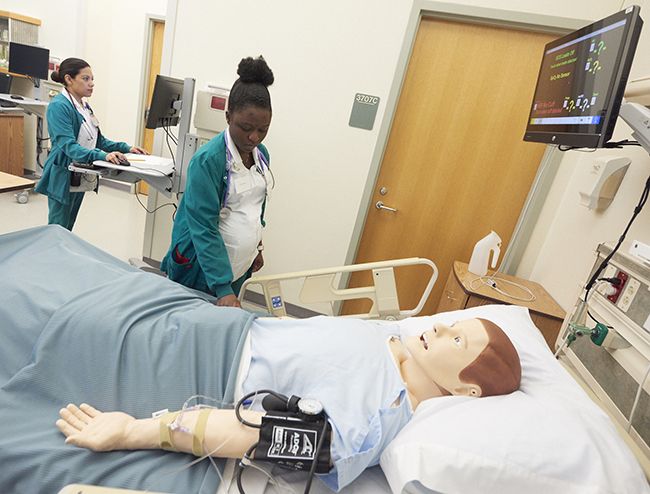Troy Moon, Pensacola State College
Pensacola State College solidified its long-standing reputation of academic excellence by earning ongoing national reaccreditation for the Nursing RN Associate in Science Degree Program through 2029.
Observers for the Accreditation Commission for Education in Nursing Inc. (ACEN) visited the College’s Registered Nursing program in February and notified administrators in September that reaccreditation was granted. The RN program was initially accredited in February 2008.
The next site visit to the College by ACEN observers of the RN program will be in spring 2029.
ACEN also awarded reaccreditation to the Practical Nursing Vocational Certificate Program earlier this year. The next observer visit for that program will be in fall 2028. PSC’s celebrated RN-to-BSN online program remains accredited by ACEN until the agency releases the results in spring 2022 of its recent PSN BSN site visit which occurred last month.
In January, U.S. News and World Report’s “Best Online Bachelor’s Programs 2021 Edition,” ranked Pensacola State’s online BSN program second among Florida College System institutions.
“Accreditation is a form of objective peer review,’’ said Erin Spicer, the College’s Vice President of Academic and Student Affairs. “There are printed standards and the visiting team reviews the program and the College to ensure that we are meeting those standards. It’s a form of quality assessment and quality assurance.”
Dusti Sluder, PSC Dean of Health Sciences, said remaining accredited has tangible meaning for students. She said that financial aid eligibility often depends on the program earning specialized accreditation.
“That really benefits the students,’’ Sluder explained. “And it’s important for our nursing programs to meet those quality standards that are required for accreditation.”
The U.S. Bureau of Labor Statistics estimates that 1.1 million new nurses will be needed nationwide next year.
A recent report commissioned by the Florida Hospital Association and Safety Net Hospital Alliance of Florida estimated that Florida will be short of 59,100 nurses by 2035, the majority of which are registered nurses.

 PirateQ
PirateQ 
